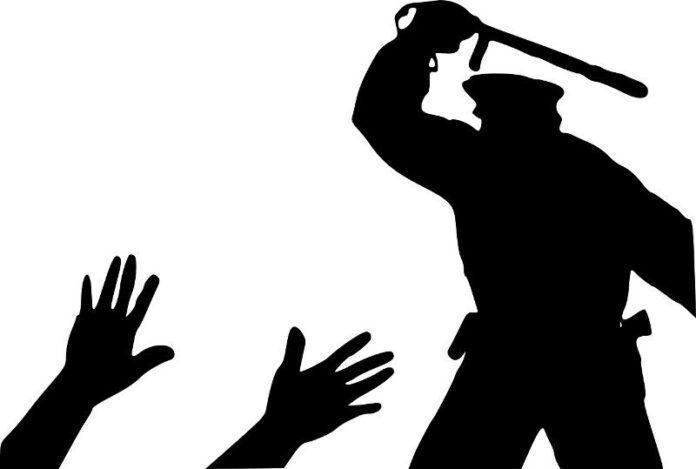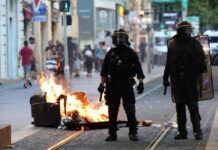The death of Nahel highlights the urgency of a judicious use of firearms in the police force.
EDITORIAL – The tragic incident that led to the death of Nahel, a seventeen-year-old, at the hands of a French police officer has deeply shaken the country and fueled violent protests that have occurred throughout France. While investigations are still ongoing to determine the exact details of the incident, it is clear that the issue of firearms use by law enforcement deserves urgent attention and thoughtful reflection.
The killing of a young boy has raised questions about the extent to which police officers are authorized to use firearms in potentially dangerous situations. While self-defense is a fundamental principle in justifying the use of firearms, it is equally important that such use is proportional to the actual threat and that everything possible is done to prevent injury or death.
The inadvertent excess in the legitimate use of firearms is a complex problem that requires a multidimensional approach. First and foremost, it is essential that police officers receive adequate training on firearms use, including training on situation assessment and high-risk situation management. This training should also include awareness of the legal implications and ethical responsibilities associated with firearms use.
Furthermore, policies and procedures regarding firearms use must be clear and transparent. Law enforcement agencies must establish guidelines that clearly define the circumstances under which the use of firearms is permitted, as well as alternative measures that should be considered before making such a decision. It is crucial that these policies are effectively communicated to all officers and regularly reviewed and updated to account for new challenges and best practices.
Supervision and accountability are fundamental aspects in ensuring the correct and responsible use of firearms by law enforcement. Hierarchical superiors must play an active role in overseeing the use of firearms by their officers and must conduct thorough investigations into any incident involving such weapons. Investigations should be independent, impartial, and transparent, and those responsible for abuses or violations must be adequately punished.
Simultaneously, promoting dialogue and community engagement in defining public security policies is necessary. Trust between the police and the community is an essential element in ensuring effective collaboration and equitable security. Independent oversight bodies must be involved to monitor the actions of law enforcement agencies and ensure that citizens have an appropriate channel to report inappropriate behavior or abuses by police officers. In this way, greater accountability and transparency can be promoted in the field of public security.
It is important to emphasize that incidents of inadvertent excess in the legitimate use of firearms are relatively rare compared to the overall number of interactions between the police and citizens. The vast majority of police officers operate professionally and responsibly. However, it is also true that due to these isolated cases of abuse, trust in the police is called into question. To rebuild this trust, it is necessary to decisively and promptly address these episodes and implement adequate measures to prevent them in the future.
The recent case of Nahel, the seventeen-year-old killed by a French police officer, is a reminder of the importance of ensuring a proper use of firearms by law enforcement. It is a call to strengthen policies, training, and supervision to prevent abuses and ensure that the use of firearms is always justified and proportionate.
Not only the French government but all governments, law enforcement agencies, and civil society must join their efforts to address this issue effectively. Only through joint cooperation and commitment will it be possible to ensure public safety and preserve trust between the police and the community.
The tragic event that led to Nahel’s death should serve as a stimulus for positive change in the way law enforcement agencies use firearms. The safety of citizens and respect for human rights must be the guiding principles that shape police action. Only then will it be possible to build a fairer and safer society for all.













